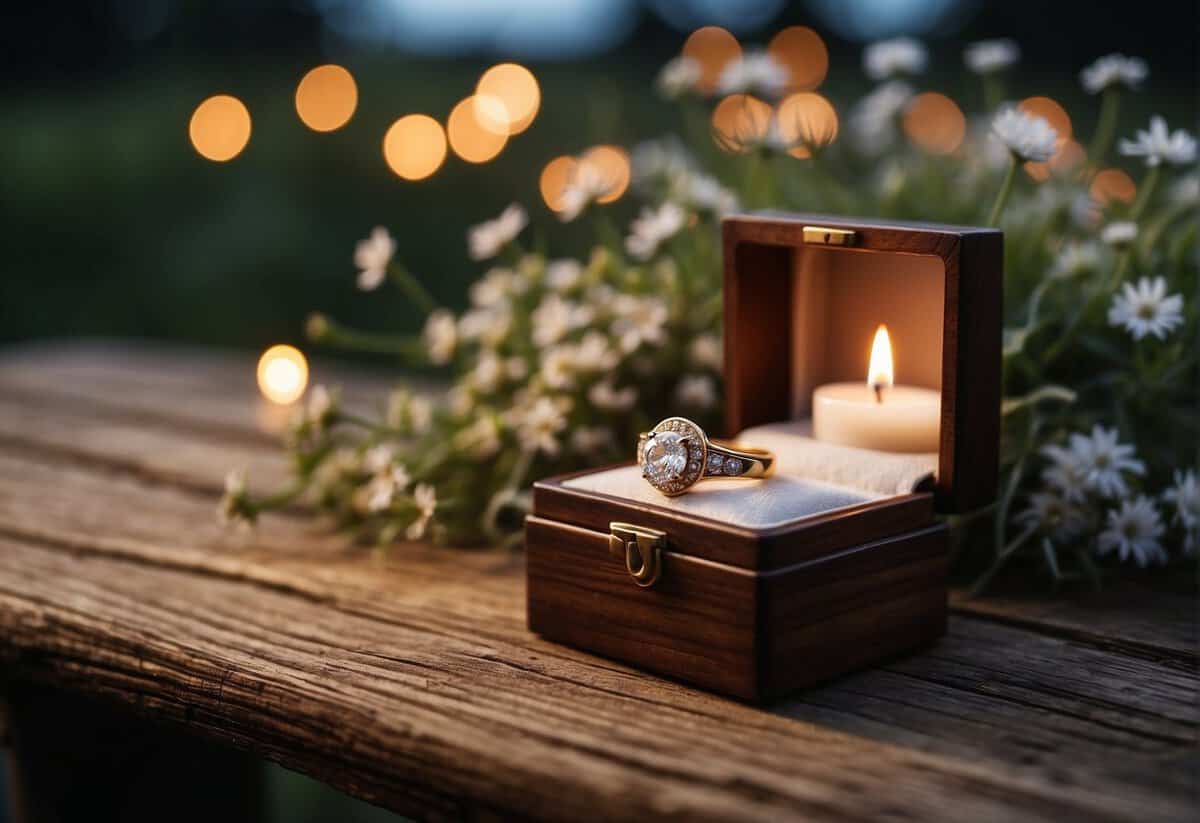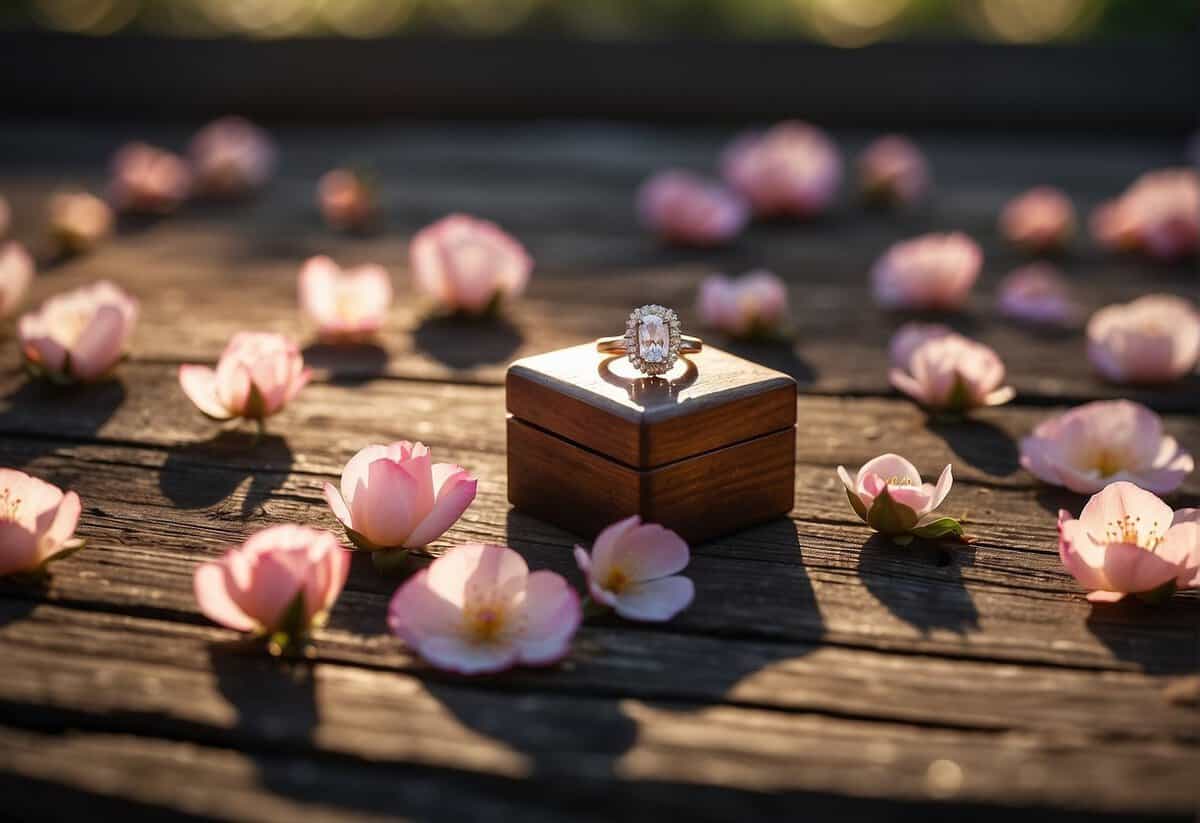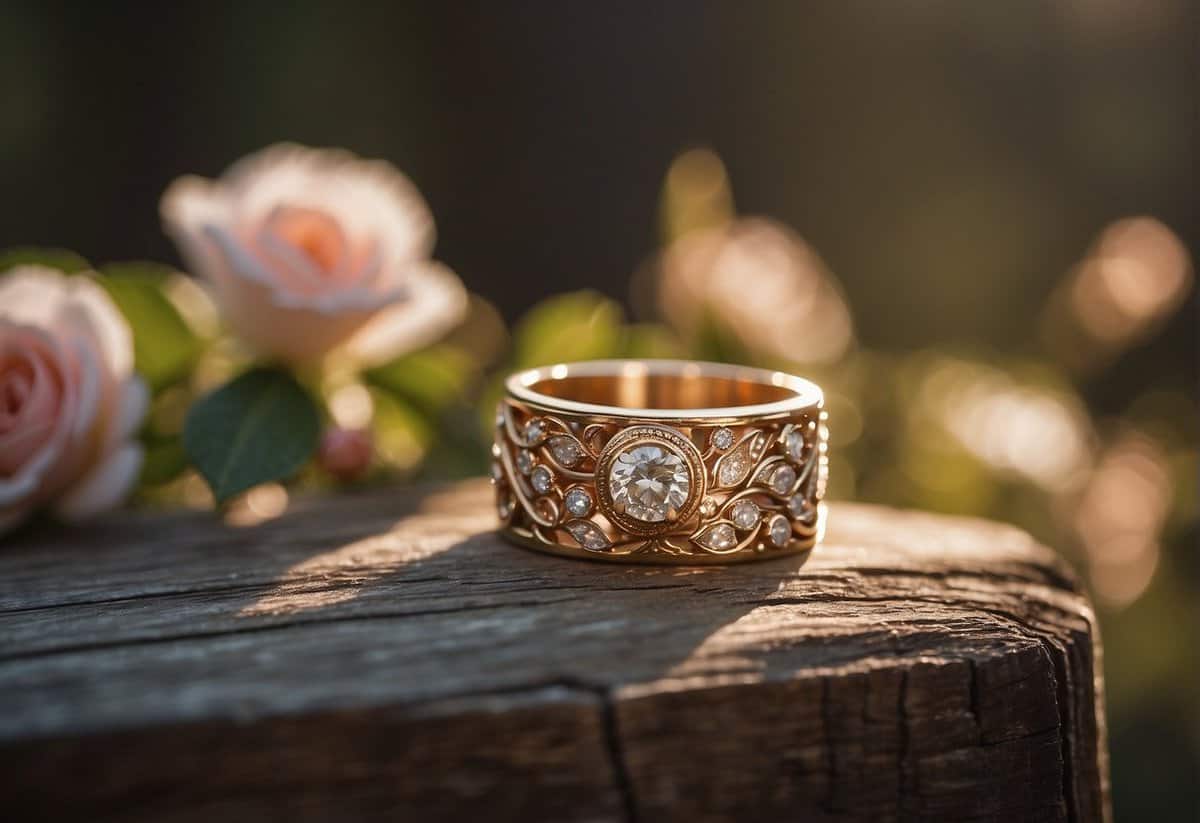Do You Propose Before Eloping? Understanding the Etiquette of Spontaneous Weddings
Eloping is a deeply personal decision that deviates from the traditional wedding process, but it often still includes many of the same elements of romance and commitment, including the proposal. While not always necessary, proposing before eloping can add a layer of intention and celebration to your decision. It sets the tone for this significant commitment and can make the elopement feel more official. Whether it’s a spontaneous decision or a well-planned getaway, a proposal before eloping is a chance to honor the traditional act of asking for your partner’s hand in marriage, even as you choose a non-traditional way to tie the knot.

Some couples may wonder if a proposal fits into their elopement plan, weighing the desire for spontaneity against the significance of the proposal tradition. In the end, whether or not you propose before eloping is a choice that should feel right for you and your partner. It’s also worth considering how this choice fits into your overall elopement planning and execution, and how it will weave into the story you tell about your relationship journey. Your elopement is a reflection of your unique bond, so every element, including the proposal, should feel authentic to your relationship.
Key Takeaways
- Proposing can add intention and tradition to the non-traditional act of eloping.
- The decision to propose before eloping is a personal one that should align with your relationship values.
- A proposal can be a memorable part of your elopement story and journey together.
Understanding Elopement

Eloping can offer a meaningful and intimate ceremony experience that differs greatly from a traditional wedding. If you’re pondering a more private and potentially adventurous way to say “I do,” elopement might be the perfect route for you.
The Basics of Elopement
Elopement is often a small, private ceremony where you and your partner marry without a traditional, large wedding setting. It contrasts with conventional weddings by its size, scope, and sometimes location, offering a way to avoid potential family drama and to keep the emotions of the day between just you two.
- Participants: Typically just you, your partner, and sometimes a handful of guests or witnesses, if required.
- Location: Anywhere, from your local city hall to an unconventional adventure in a remote destination.
- Planning: Can be minimal but varies based on your desires – city hall requires less planning than a mountaintop.
Reasons for Choosing Elopement
Many choose to elope for the privacy and intimacy it offers. It allows you to focus on your relationship without the pressure of a guest list or the pomp of a traditional wedding. Here are some reasons you might consider eloping:
- Personal preference: Some couples prefer a moment that’s solely about their love and commitment, away from the public eye.
- Adventure: Combine your wedding with an unconventional adventure—perhaps a quiet beach ceremony at sunrise or a vow exchange atop a scenic cliff.
- Emotional comfort: If the thought of a big wedding with all eyes on you brings anxiety, eloping can offer an emotionally comfortable alternative.
- Family dynamics: Circumventing potential family drama can be a powerful motivator for eloping, letting you avoid the stress that can come with larger family gatherings.
Choosing to elope is a personal decision that should align with your values and vision for your special day. Whether it’s simplicity, a sense of adventure, emotional ease, or privacy you seek, eloping gives you the freedom to commit to your partner in a way that feels right for you.
Pre-Elopement Essentials

When considering an elopement, it’s important to address a few critical components to ensure your day is structured and legal. From navigating personal conversations to handling the official paperwork, attention to detail will pave the way for a beautiful and stress-free ceremony.
Discussing with Partner and Family
Before anything else, having a candid discussion with your partner is essential to ensure you’re both on the same page regarding your elopement. Discuss whether you’ll invite family and friends or keep the ceremony intimate. Considering your family’s feelings and deciding how to include or inform them is an important step to avert potential misunderstandings.
Legal and Paperwork Preparation
Obtaining a marriage license is a top priority; familiarize yourself with the legal requirements in your chosen destination to avoid any last-minute hiccups. If you’re eloping abroad, look into whether you’ll need a local wedding planner who’s knowledgeable about the area’s legal paperwork.
Setting the Date and Destination
Deciding when and where to elope can impact the atmosphere of your special day. Research destinations and consider an elopement package that can simplify the planning process. If planning during a pandemic, keep informed about travel advisories and venue restrictions.
Budgeting for Your Elopement
Creating a budget is crucial, as costs can vary widely depending on the venue, travel, accommodations, and any vendors you may need. Consider if you will need to budget for rings, your attire, or a photographer as part of your elopement expenses. Remember to set funds aside for potential courthouse fees or unexpected logistics.
Elopement Planning and Execution

When you choose to elope, the simplicity of your day allows for an intimate and personalized experience. Yet, certain essentials still need your attention for everything to unfold smoothly.
Selecting Vendor and Services
To capture your special day, a skilled elopement photographer is indispensable. Depending on your preference, a videographer can also add a cinematic touch. For ambiance, a florist will tailor bouquets and arrangements to your locale and season. While many aspects of a traditional wedding aren’t necessary for an elopement, you may still want a personal touch from these vendors.
- Photographer: Essential for capturing the moment.
- Videographer: Optional but valuable for dynamic memories.
- Florist: Adds aesthetic to your ceremony.
Elopement Timeline and Checklist
A well-structured timeline and thorough elopement checklist ensure a stress-free lead-up to your elopement. Begin with securing your marriage license, then proceed to book travel and accommodations if planning a destination wedding. Here’s what your checklist might include:
- Travel and lodging booking.
- Marriage license application.
- Vendor confirmations.
Remember to account for potential waiting periods or specific requirements if you’re looking to self-solemnize or need a wedding officiant present.
Attire and Rings
While elopements are less formal, choosing your wedding attire and wedding rings remains an essential part of the personal commitment you’re making. Whether you opt for a classic suit, a chic dress, or something that uniquely represents your style—these elements are quintessential to your elopement’s aesthetic.
- Clothing: From simple to sophisticated, pick what feels true to you.
- Rings: The symbol of your union, chosen with care.
The Ceremony Itself
The heart of your elopement is the ceremony itself, where you will exchange vows and wedding rings. Decide if you want a celebrant or officiant to lead the proceedings or if you prefer to exchange vows privately. Some locations allow couples to self-solemnize, which means you can marry without an officiant.
- Officiant: Required in some regions, optional in others.
- Ceremony: Personalize this moment to reflect your union.
By focusing on these details, your elopement will not only be less complicated than a traditional wedding but just as memorable.
After the Elopement

Once you’ve eloped, there are a few important steps to take to ensure your union is legally recognized and to share your joy with others. From making sure the paperwork is in order to celebrating your newlywed status, here’s what you should consider post-elopement.
Making the Marriage Official
After exchanging your wedding vows in the intimate setting of your choice, the next essential step is to make your marriage official. This usually involves signing a marriage license with your witness or witnesses — a requirement that can vary based on your elopement location, be it domestic or an international destination. Also, be mindful of any waiting period that may apply before the marriage is official. For a destination elopement, make sure to research the local legalities and obtain any necessary permits.
Sharing the News
Once legally married, you’ll likely want to share the exciting news! Elopement announcements offer a way to inform those who weren’t present for your wedding day. You can share these announcements digitally or through mailed cards. For guidance, visit Bella Bridesmaids’ Elopement Checklist for ideas on post-elopement etiquette.
Post-Elopement Celebration
Eloping doesn’t mean sacrificing a celebration. Many couples plan a post-elopement party or reception that can range from a casual gathering to a larger event that mimics a big wedding. This celebration can be immediately after your return or planned for a future date, allowing flexibility for your wedding budget and scheduling your honeymoon. Resources like The Knot’s guide to post-elopement parties can help you plan an event that suits your style.
If you involve elopement vendors, such as a photographer or caterer, it’s often easier to secure their services since they’ll likely require less lead time than a traditional wedding celebration. And remember, this is your special time — whether you wish a quiet dinner or a festive party, do what feels right for you and your partner.
Frequently Asked Questions

When it comes to eloping, you may have questions about proposals, engagement conventions, and timelines. Let’s explore the answers to some of the most common queries.
What’s the typical timeline for proposing prior to eloping?
The timeline can vary widely among couples. Some choose a spontaneous route and propose just days before eloping, while others may plan their elopement several months after a proposal, allowing for time to get a marriage license and make arrangements.
Is an engagement necessary before choosing to elope?
No, an engagement isn’t strictly necessary before eloping. Some couples decide to elope without a formal engagement period, seeing it as a more spontaneous or intimate decision.
How do couples often handle engagement rings when they decide to elope?
Couples may opt for traditional engagement rings, exchange simple bands during the elopement, or even forgo rings entirely. It’s all about what feels right for you.
Can you get married without having a formal proposal?
Yes, you can get married without a formal proposal. Some couples have a mutual agreement to marry without one partner asking the other in the traditional sense, especially if they value a less conventional approach.
What is considered too soon for a marriage proposal if planning to elope?
What’s too soon for one couple may be just right for another. There’s no set rule; trusting your instinct about your relationship’s pace is key when considering to elope.
Do most couples get engaged before they get married, even when eloping?
Many couples do have some form of engagement before marrying, even if it’s just the decision to elope. However, it’s becoming more common for couples to skip the traditional engagement process when opting for an elopement.

